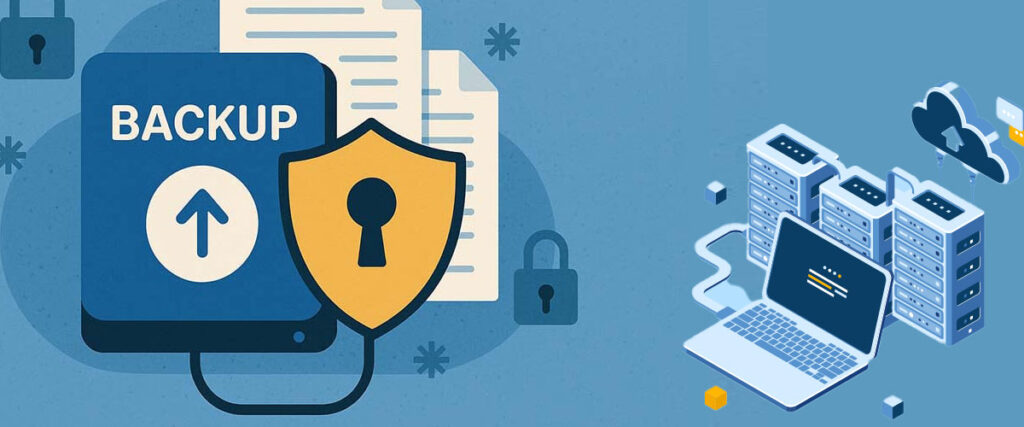Cloud Backup Security: How Safe Is Your Data Really?

In today’s digital world, data has become one of the most valuable assets we possess. Whether it’s personal photos, financial documents, or critical business files, losing data can be devastating. To prevent this, cloud backup has become an essential part of how people and companies protect their information. But one major question remains — how safe is your data really when stored in the cloud?
Cloud storage promises security, convenience, and scalability. However, it also introduces new vulnerabilities that users must understand. This article explores how cloud backup security works, the risks involved, and how to ensure your data remains safe from unauthorized access, breaches, or accidental loss.
Understanding How Cloud Backup Security Works
When you upload data to a cloud service, that information is stored in massive data centers located around the world. These facilities are equipped with high-end hardware and advanced encryption technologies designed to protect your data both in transit and at rest. The most trusted cloud providers, such as Google, Amazon, and Microsoft, use 256-bit AES encryption — the same level used by banks and government institutions.

Encryption ensures that even if hackers intercept your data, it will appear as random, unreadable code without the decryption key. Additionally, most services use two-factor authentication (2FA) to verify your identity before allowing access. That means even if someone steals your password, they still can’t get into your account without your phone or another trusted device.
Still, even with these protections, cloud security is a shared responsibility. The provider secures the infrastructure, but you are responsible for securing your own login credentials, devices, and user settings. Neglecting these aspects can still lead to serious breaches, regardless of how robust the cloud service itself might be.
Common Risks and Misconceptions About Cloud Backup
One of the biggest misconceptions about cloud backup is that it’s entirely foolproof. Many users believe once their data is in the cloud, it’s automatically safe from harm — but that’s not always true. Cloud services can experience outages, human error, or even internal threats from employees with access privileges. A common example is data misconfiguration, where users accidentally leave their storage folders public. This simple mistake has led to many high-profile leaks of sensitive corporate data. Another issue is ransomware attacks targeting synced folders. If your local files become infected and are automatically synced, the encrypted versions could overwrite your cloud backups as well.
Privacy is another major concern. Some users fear that cloud companies may analyze or share stored information. While most providers have strict privacy policies, data can still be subject to government access requests or legal subpoenas, depending on where the servers are located. Understanding the laws that apply to your cloud provider’s country is therefore critical to evaluating your data’s true safety.
How to Strengthen Your Cloud Backup Security
There are several proactive steps you can take to improve your cloud backup security. First, always choose a reputable provider that offers end-to-end encryption, zero-knowledge policies, and transparency reports. Zero-knowledge encryption means the provider cannot view or decrypt your data — only you can. This is the gold standard for privacy.
Second, manage your passwords wisely. Use strong, unique passwords for every service and store them in a secure password manager. Combine this with two-factor authentication to prevent unauthorized access, even if your password is compromised.

Third, keep your local devices secure. A virus or keylogger on your laptop can compromise your cloud data even before it’s uploaded. Regularly update your operating system and antivirus software to patch vulnerabilities that hackers might exploit. If you’re an ASUS laptop user, you already benefit from solid system security features, but cloud safety depends on more than your hardware. Combine your laptop’s built-in protections with encrypted cloud storage to build a strong defense around your data.
The Future of Cloud Security: Are We Truly Safe?
As cyber threats evolve, cloud technology continues to advance just as rapidly. Artificial intelligence and machine learning are now used to detect suspicious behavior before it becomes a full-scale attack. Automated systems can block unauthorized access attempts, monitor unusual login activity, and notify users in real time.
However, as long as human error remains part of the equation, no system can be 100% secure. True security comes from awareness, habits, and proactive protection. Users who treat cloud safety as a shared responsibility — rather than something handled entirely by the provider — will always be one step ahead of potential threats.
Ultimately, cloud backup isn’t just about convenience; it’s about peace of mind. It ensures that no matter what happens to your laptop, tablet, or phone, your memories, projects, and critical data remain recoverable. But that peace of mind only holds true if you take cloud security seriously — by choosing trusted providers, managing your credentials wisely, and staying informed about evolving risks.
Conclusion: Finding Balance Between Safety and Convenience
In the end, cloud backup security is neither completely risk-free nor dangerously unsafe. It’s a balance between the technology that protects your files and the discipline you maintain as a user. For most people and businesses, the benefits — accessibility, automation, and scalability — outweigh the risks. By combining strong encryption, careful password management, and awareness of potential threats, you can make cloud storage a highly secure and reliable solution. Whether you’re an ASUS laptop user or rely on another device, the key is to stay proactive. The safety of your data ultimately depends not just on the cloud, but on how wisely you use it.
